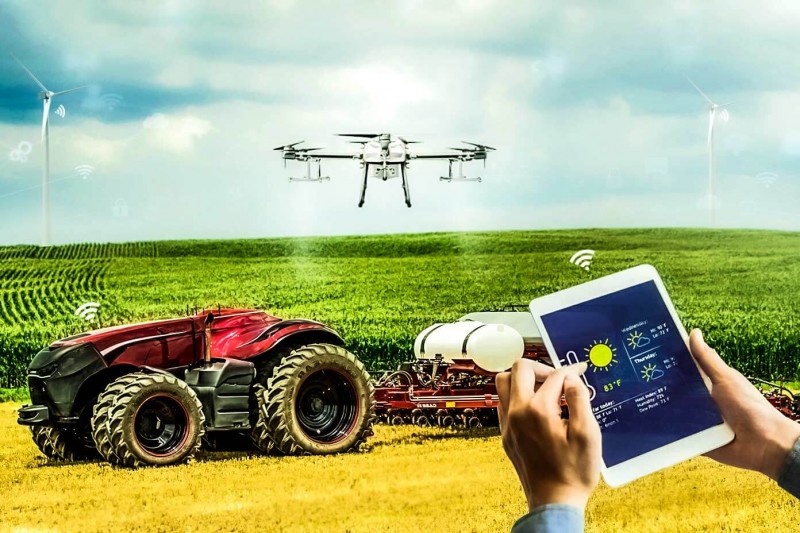
KUALA LUMPUR: Experts have called on the government to further incorporate the use of artificial intelligence (AI) and smart technology in agriculture to boost food security and productivity.
They said the use of AI would augur well with the Madani Economy framework, which aimed to bolster food security by employing agro-technology; establishing a win-win situation in free-trade agreements; and optimising unused land.
Universiti Putra Malaysia's (UPM) Putra Business School agricultural economist Professor Datuk Dr M. Nasir Shamsudin said innovation and investments in agricultural system technology would allow farmers to become profitable and efficient, while using safer and environmental-friendly practices.
He said this would establish more reliable monitoring systems for natural resources, such as air and water quality, which in turn, would give farmers better control over crop and livestock production, processing, distribution and storage.
Nasir said farmers would see greater efficiency in their operations, reduced cost and safer growing conditions with less environmental and ecological impact. He said consumers would also benefit as such systems could lower the prices of produce,
"Examples of such technology are, among others, soil and water sensors, weather tracking, satellite imaging, automation, minichromosome technology, vertical farming, AI, nanotechnology, GPS applications, robots and precision agriculture.
"In using such technology, farmers no longer have to apply water, fertiliser and pesticides uniformly across entire fields.
"Instead, they need only use minimum quantities of water, fertiliser or pesticides because they need only target very specific areas, or even treat individual crops differently."
Nasir said developments in agricultural system technologies had allowed most developed economies to increase their farm productivity.
He said in Malaysia, low levels of agricultural systems technology application was a major stumbling block in increasing productivity in the sector.
"The application of such technology must be supported by research and development in the fields of physical sciences, engineering and computer sciences, as well as the development of agricultural devices, sensors and systems. Assessments must also be made on how to employ such technology economically with minimal disruption to existing practices.
"There must also be programmes to train farmers on how to use new technology," said Nasir.
He added that investments must be expedited for these scientific and technological advances, as well as for appropriate infrastructure, capacity-building initiatives and policies.
"In terms of capacity-building, other than academic programmes in agricultural engineering, which is currently being offered by UPM, universities may also consider offering academic programmes in agricultural systems technology.
"Graduates can find rewarding careers in a variety of agricultural businesses. Among them are careers focusing on managing, using and troubleshooting technology, which applies knowledge on agriculture and processing systems."
He said in terms of policy, incentives must be provided to help absorb the cost incurred by farmers in their input and output, which could encourage them to invest in sustainable and profitable farming practices.
Universiti Malaya agriculture expert Dr Muhamad Shakirin Mispan said among the types of agro-technology that Malaysia could adopt were smart farming, precision farming and distribution applications.
He said by incorporating agrotech into their practices, farmers could produce higher quality crops with added value.
"One example is for mushroom farmers to cultivate the crop as a food seasoning item or to produce vegan burgers. This gives added-value to their produce and they may even export their products.
"This would not only increase our food security, but help sustain the country's economy," said Shakirin, adding that such practices would attract more youths to the agricultural sector.
He said the development of an application to facilitate the distribution of agricultural produce would help farmers gain more income and expand their businesses.
Meanwhile, Universiti Putra Malaysia Institute of Tropical Agriculture and Food Security research fellow Datin Paduka Dr Fatimah Mohamed Arshad said Malaysia had to expedite the adaptation of AI to mitigate the effects of climate change on the agriculture sector.
She said AI could be used to monitor climate change to develop early warning systems and monitor supply-and-demand through big data.
She said the technology could be applied to various points of the supply chain from its distribution to the consumer.
"This is the best chance for Malaysia to be a leader in this field. We can use this opportunity to develop 'climate smart' agricultural technology to revamp and transform our agriculture sector. We could even export such technology overseas.
"We need to create applications for input distribution as well as management for water, fertiliser, disease and weather, to name a few. It is a gold mine for application developers," she said.
Universiti Utara Malaysia Professor at the School of Economics, Finance and Banking Professor Dr Shri Dewi Applanaidu said investments in research and development (R&D) should be focused based on specific needs of different types of farming.
"Sometimes we aim for a big chunk of money to be invested for R&D, but this may not be necessary at times. It depends on the needs of the area.
"To cite an example, smallholders in the plantation sector need help to boost productivity. In such a case, investments in R&D should be channelled into research for production instead any other activities," she said.
Source : https://www.nst.com.my/news/nation/2023/08/946634/essential-embrace-hi-tech-farming

